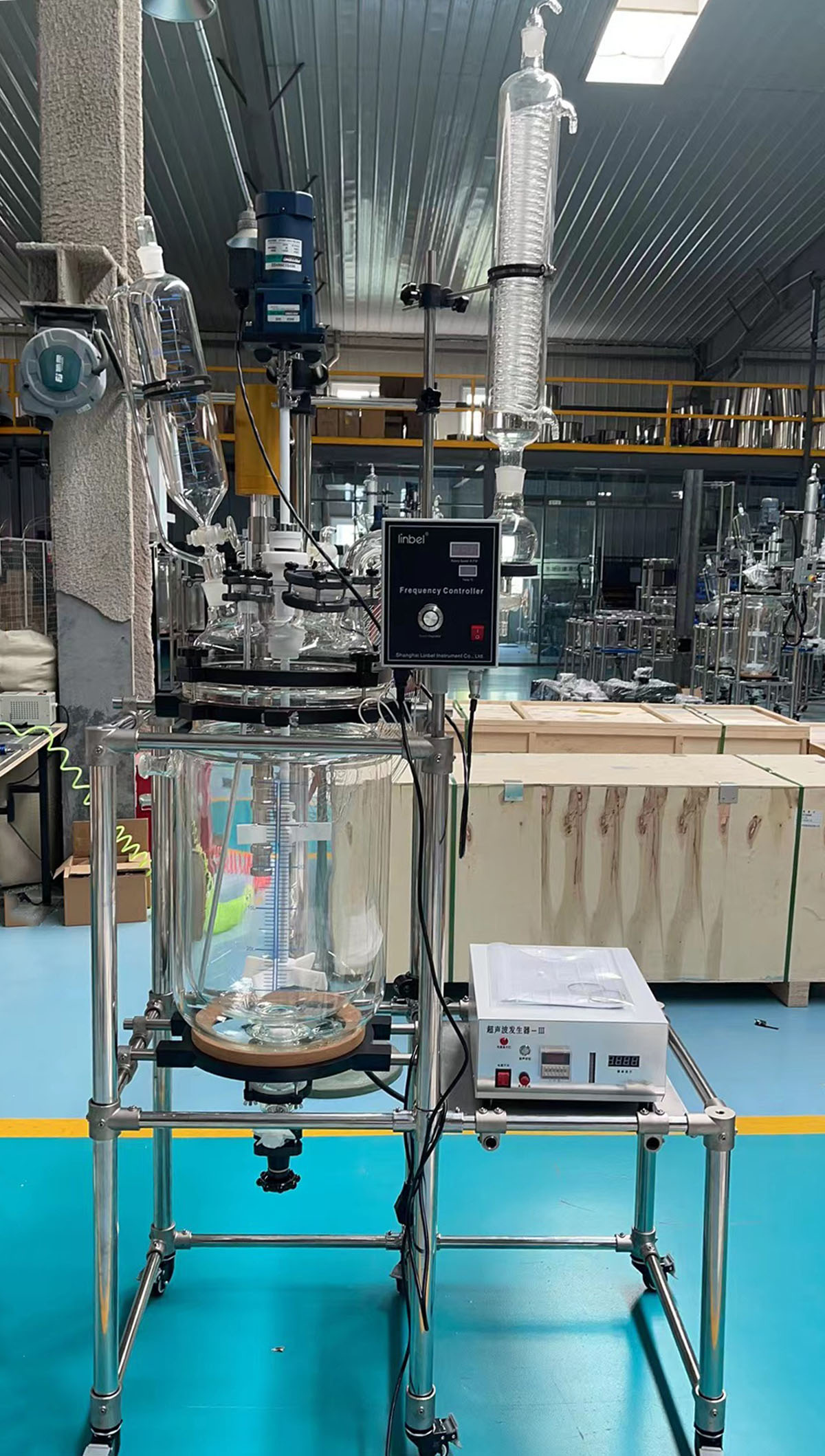Ultrasonic glass reactor
Ultrasonic processing technology is widely used in different fields, mainly utilizing the phenomenon of ultrasonic cavitation to generate reaction environments that are difficult to achieve under conventional conditions such as local high temperature, high pressure, and strong shock waves.

Ultrasonic glass reactor are mainly applied in the following scenarios:
1. Ultrasonic catalysis
Ultrasound can activate the surface of substances, play a role in accelerating catalysis, and can also be applied to emulsification reactions, homogeneous reactions, esterification reactions, etc.
2. Processing high polymers
Process polymerization reactions, polymer degradation, and other reactions using an ultrasonic reactor.
3. Grignard reaction
Using ultrasound as the triggering condition, Grignard reagent is prepared to prepare organic compounds such as dimethyl benzyl alcohol. Compared with conventional initiation conditions, ultrasound induced Grignard reaction has the advantages of short reaction time, energy conservation, simple operation, and high yield.
4. Analytical Chemistry
Ultrasound conditions can significantly improve the catalytic hydrogenation efficiency of soybean oil, olefins, etc.
The ultrasonic glass reactor developed by Linbel Instrument can meet the needs of customers in various industries such as chemistry, medicine, and energy.